In this article, we dive into how to reduce anxiety by incorporating 12 effective methods into our daily routines.
Table of Content:
- What is anxiety and how to reduce it?
- Practice Mindfulness and Meditation
- Regular Physical Exercise
- Maintain a Healthy Diet
- Get Adequate Sleep
- Limit Alcohol and Avoid Smoking
- Connect with Others
- Practice Deep Breathing Exercises
- Engage in Hobbies and Interests
- Set Realistic Goals
- Seek Professional Help
- Limit Exposure to Stressors
- Practice Gratitude
What is anxiety and how to reduce it?
Anxiety is a common experience that can range from mild unease to intense fear or panic. It can be triggered by various factors, including stress, life changes, or underlying health issues. While it’s normal to feel anxious occasionally, chronic anxiety can interfere with daily life and overall well-being. Fortunately, there are numerous strategies to manage and reduce anxiety. The following are 12 effective ways to help calm your mind and regain control.
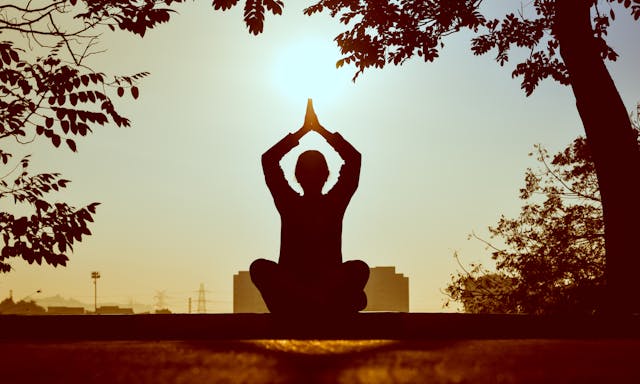
1. Practice Mindfulness and Meditation
Mindfulness and meditation are powerful tools for managing anxiety. Mindfulness involves focusing on the present moment and accepting it without judgment. Meditation, on the other hand, involves a variety of techniques to calm the mind and achieve a state of relaxation. As a result, regular practice of mindfulness and meditation can help reduce anxiety by promoting a sense of calm and balance.
How to Get Started:
- Mindfulness Exercises: Simple practices such as mindful breathing, body scan meditation, and mindful walking.
- Guided Meditations: Use apps like Headspace or Calm to access guided sessions that can help you get started.
- Daily Practice: Even a few minutes a day can make a significant difference in reducing anxiety levels.
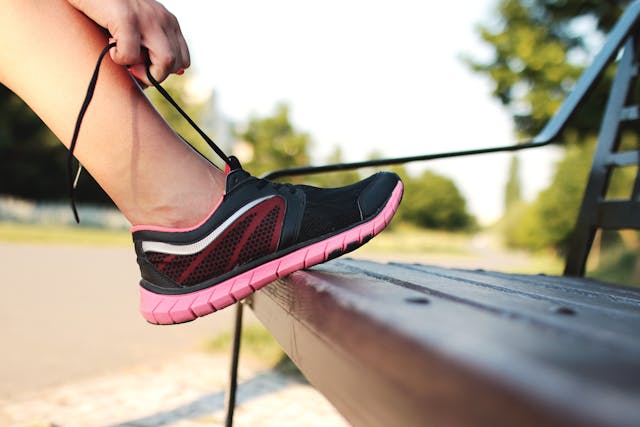
2. Regular Physical Exercise
Exercise is a natural stress reliever. It helps reduce anxiety by releasing endorphins, the body’s natural mood enhancers. Regular physical activity also promotes better sleep, improves self-esteem, and provides a healthy distraction from worries.
Types of Exercise:
- Cardio: Running, swimming, cycling, or brisk walking.
- Strength Training: Lifting weights or doing bodyweight exercises like push-ups and squats.
- Mind-Body Exercises: Yoga and Tai Chi combine physical activity with mental focus and are particularly effective for anxiety.
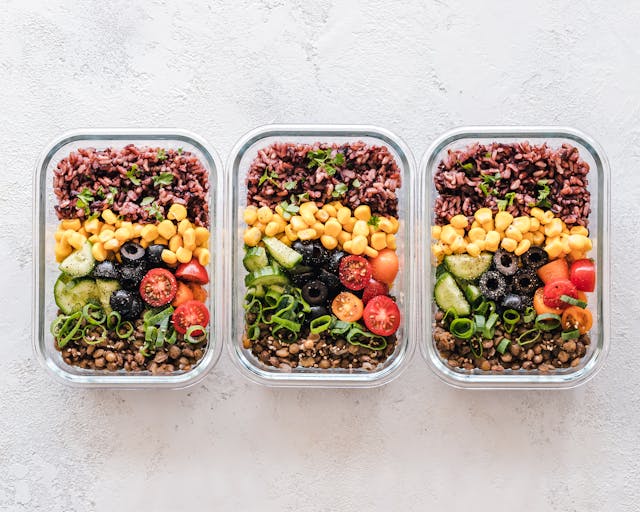
3. Maintain a Healthy Diet
What you eat can have a profound effect on your anxiety levels. A healthy, balanced diet can help stabilize your mood and energy levels. Certain foods are known to reduce anxiety, while others can exacerbate it.
Anxiety-Reducing Foods:
- Complex Carbohydrates: Whole grains, such as oatmeal, can increase serotonin levels.
- Omega-3 Fatty Acids: Found in fish like salmon and mackerel, as well as flaxseeds and walnuts.
- Probiotics: Yogurt, kefir, and fermented foods support gut health, which is linked to mood regulation.
- Herbal Teas: Chamomile and green tea can have a calming effect.
Foods to Avoid:
- Caffeine: Can increase heart rate and trigger anxiety symptoms.
- Sugar: High sugar intake can lead to energy crashes and mood swings.
- Processed Foods: Often high in sugar and unhealthy fats, which can negatively affect mood.
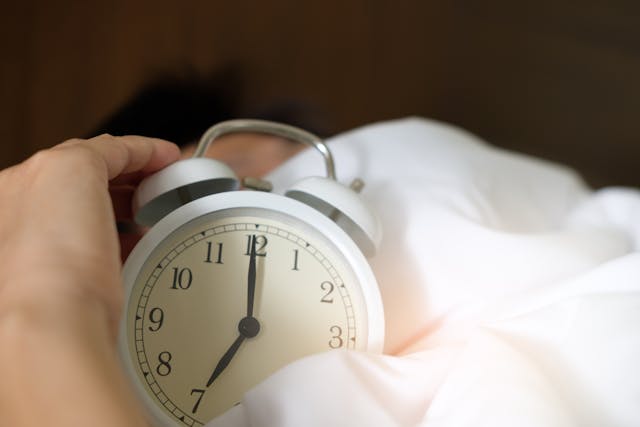
4. Get Adequate Sleep
Sleep and anxiety are closely linked. Poor sleep can exacerbate anxiety, while anxiety can interfere with sleep. Establishing a regular sleep routine can help improve both sleep quality and anxiety levels.
Tips for Better Sleep:
- Consistent Schedule: Go to bed and wake up at the same time every day.
- Sleep Environment: Make your bedroom comfortable and free from distractions.
- Limit Screen Time: Avoid screens for at least an hour before bed, as blue light can disrupt sleep patterns.
- Relaxation Techniques: Practices such as reading, listening to calming music, or taking a warm bath before bed.
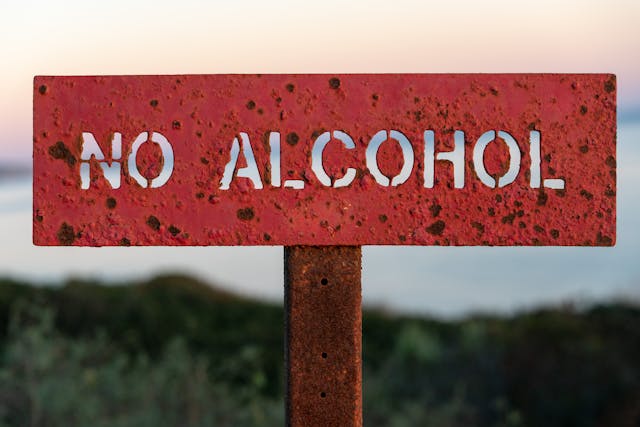
5. Limit Alcohol and Avoid Smoking
While alcohol and smoking may provide temporary relief from anxiety, they can worsen it in the long run. Alcohol can disrupt sleep and affect mood, while nicotine is a stimulant that can increase anxiety.
Strategies for Reduction:
- Moderation: Limit alcohol consumption to a few drinks per week.
- Quit Smoking: Seek support groups or use nicotine replacement therapies to quit smoking.
- Healthy Alternatives: Replace these habits with healthier activities like exercise or hobbies.

6. Connect with Others
Social connections are essential for mental health. Spending time with friends and family can provide emotional support and a sense of belonging, which can help reduce anxiety.
Ways to Connect:
- Social Activities: Join clubs, groups, or community activities that interest you.
- Regular Meetups: Schedule regular times to catch up with friends or family.
- Online Communities: Participate in online forums or support groups related to anxiety.

7. Practice Deep Breathing Exercises
Deep breathing exercises can help reduce anxiety by calming the nervous system and promoting relaxation. In addition, these exercises are simple to do and can be practiced anywhere.
Techniques to Try:
- Diaphragmatic Breathing: Breathe deeply into your diaphragm rather than shallowly into your chest.
- 4-7-8 Breathing: Inhale for 4 seconds, hold for 7 seconds, exhale for 8 seconds.
- Progressive Muscle Relaxation: Tense and then relax each muscle group, starting from your toes and working up to your head.

8. Engage in Hobbies and Interests
Engaging in activities that you enjoy can provide a healthy distraction from anxiety and improve your overall mood. Hobbies can also offer a sense of accomplishment and purpose.
Ideas for Hobbies:
- Creative Arts: Painting, drawing, writing, or playing a musical instrument.
- Physical Activities: Hiking, dancing, or playing sports.
- Learning: Taking up a new hobby or learning a new skill, such as cooking or knitting.
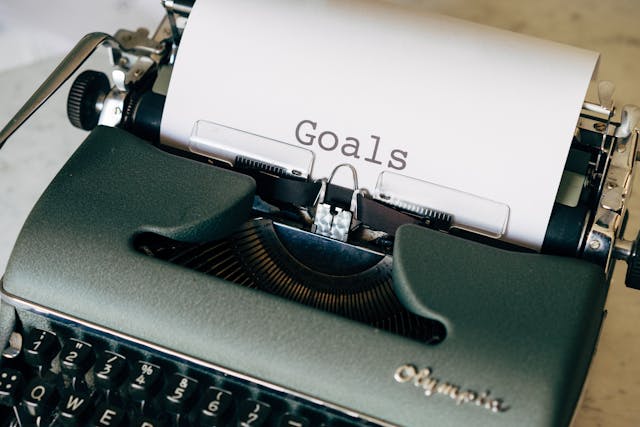
9. Set Realistic Goals
Setting realistic and achievable goals can help reduce anxiety by providing a sense of direction and purpose. Furthermore, breaking larger tasks into smaller, manageable steps can make them less overwhelming.
Goal-Setting Tips:
- SMART Goals: Ensure your goals are Specific, Measurable, Achievable, Relevant, and Time-bound.
- Prioritize: Focus on what’s most important and tackle those tasks first.
- Celebrate Progress: Acknowledge and reward yourself for small achievements along the way.

10. Seek Professional Help
If your anxiety is severe or persistent, seeking help from a mental health professional can be beneficial. Therapists can provide various treatments, such as cognitive-behavioral therapy (CBT), which is effective for anxiety.
Types of Professional Help:
- Therapy: Individual or group therapy sessions.
- Medication: Prescribed by a psychiatrist if necessary.
- Support Groups: Joining a support group for people with anxiety can provide shared experiences and coping strategies.
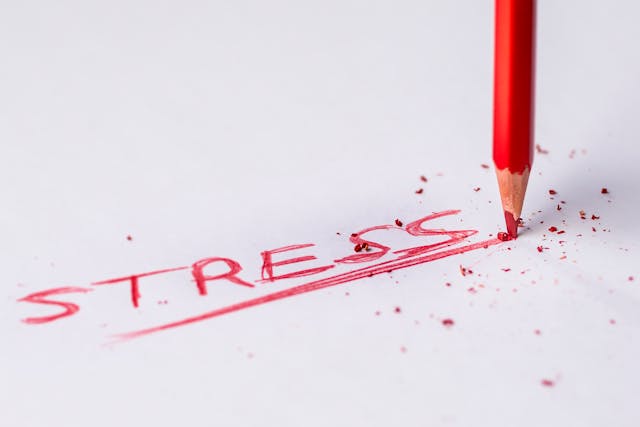
11. Limit Exposure to Stressors
Identify and limit your exposure to sources of stress where possible. This can involve making lifestyle changes or setting boundaries to protect your mental health.
Strategies:
- Manage Workload: Delegate tasks or ask for help if you’re feeling overwhelmed.
- Digital Detox: Limit time on social media or news websites that may increase anxiety.
- Healthy Boundaries: Learn to say no to commitments that add unnecessary stress.

12. Practice Gratitude
Focusing on positive aspects of life and practicing gratitude can shift your mindset away from anxiety and towards a more positive outlook.
Gratitude Practices:
- Gratitude Journal: Write down three things you’re grateful for each day.
- Thank You Notes: Express your appreciation to people who have positively impacted your life.
- Mindful Reflection: Take a few minutes each day to reflect on the good things in your life.
Bottom Line
Anxiety is a challenging experience, but it is manageable with the right strategies. Incorporating these 12 methods into your daily routine can help reduce anxiety and improve your overall quality of life. Remember, it’s important to find what works best for you and to seek professional help if needed. With consistent effort and support, you can achieve a calmer, more balanced state of mind.


